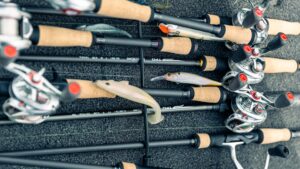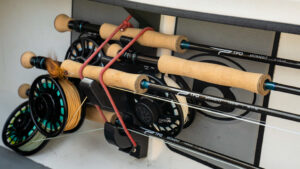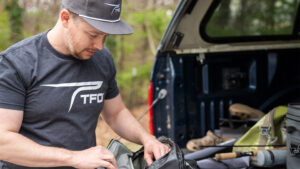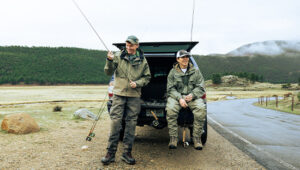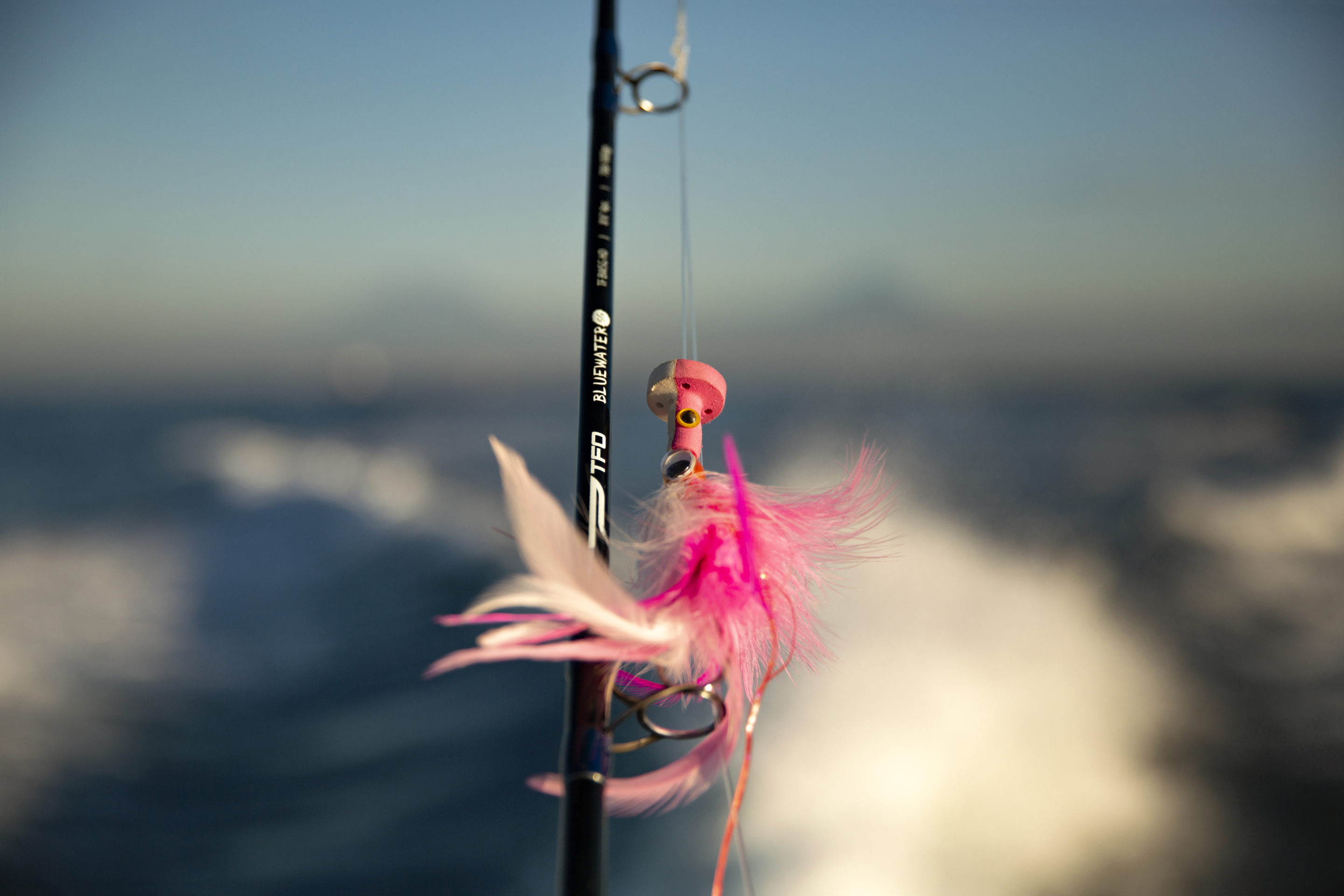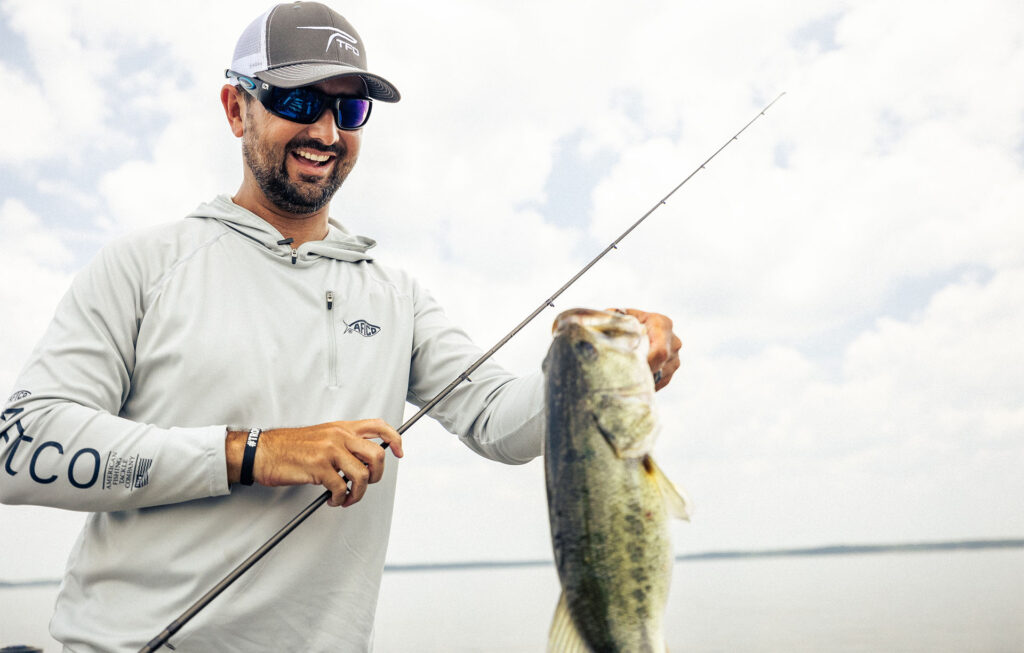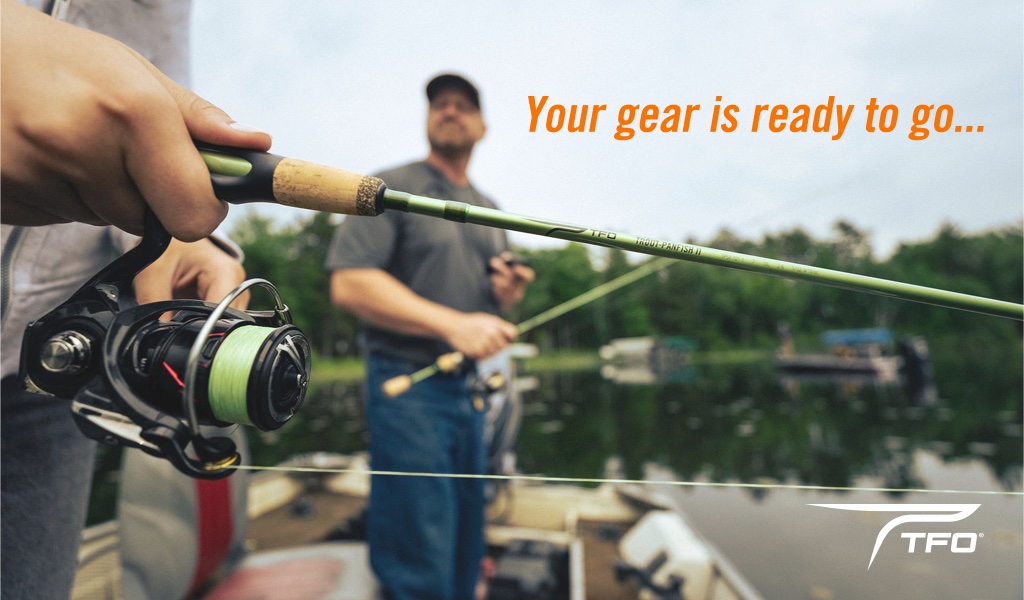It’s the early 2000s at TFO headquarters, and founder Rick Pope and Lefty Kreh are working on a new fly rod. At the time, TFO only had three rods in their lineup: the Professional Series and Signature Series – both moderate action rods, and a versatile, fast action rod – the TiCr.
The now discontinued fast action series was offered in a 4wt for freshwater trout all the way up to a 12wt for tarpon. The blanks were made using titanium chromium technology (no longer available), resulting in a more durable, faster action rod compared to the Professional and Signature series.
Rick and Lefty wanted to expand the TiCr lineup to be used for big game offshore species and worked with BJ (TFO rod engineer) to make a few versions in a 14wt. A few prototype rods were made, but they needed to be put to the test.
“Jake Jordan was introduced to me by Gary Loomis. When I met him, he had already landed (or leadered) his 1000th billfish on the fly.” reflects Rick Pope. “We needed someone to put these rods to the test for their intended purpose, and we knew Jake was the right guy.”
Insert Jake Jordan
“When I first started working with Rick, Lefty and BJ, I was currently using the 12wt TiCr rod for tarpon, and the 7-8-9s for bonefish and permit. Rick and Lefty had been working with BJ on a 14wt version, and I was sent four of those to take down to Guatemala to test on billfish. The first trip in three days, I broke all four rods. That’s when the word got out that if you want to test a new rod out, send it to Jake.”

The handle sections (top) of the original TiCr big game rod compared to the current Bluewater SG (first three sections). // Photo: Jake Jordan
I came back with ideas, and the result was the original, 3-piece Bluewater series, which lasted for 6-7 years. Evolving from the same elements as the TiCr series, the idea of the Bluewater series rods was to design a rod that was made to make short casts with big flies, but more importantly, to have the necessary lifting power to pull up on big fish that are down deep.

Jake Jordan with a sailfish caught on the second generation TFO BW- HD 4 piece fly rod, before the SG. // Photo: Jake Jordan
Designs & Alterations
The first alteration we made was to remove the snake guides. Traditionally, snake guides have been around for hundreds of years and popular for anglers because they allow the line to slide out smoothly when casting, however, they cause problems when applied to handling big, offshore fish. When you’re lifting on the rod while fighting a big fish with the appropriate amount of drag, the vinyl coated fly line runs against the snake guides. This creates a constant friction that is essentially like rubbing your fly line against a dull butter knife. It’ll eventually break the coating off the fly line and break the fly line.
We also made adjustment to the reel seat that matched up with IGFA regulations. One of the rules they created for single handed rods was to allow a fighting butt on the back of the reel that is up to six inches from the center of the reel foot. When you’re fighting the fish, the extended fight butt moves the larger reel (used for extra backing) away from your stomach/shirt so that it doesn’t get tangled in the line/reel when you’re fighting the fish.
Next, we changed the grip. The original foregrip was split into two pieces – a double well grip, followed by an open space, then a cigar handle – also known as a foregrip. When I started fishing for billfish and other big game species, I found that having a foregrip on there would be awkward for sliding up and down, and that’s when I came up with a one-piece cork design. This became apparent in the second and third generations of the Bluewater series.

Heavy lifting with the BWSG-HD. // Photo: Oliver Sutro
The Bluewater series was also altered from a 3 piece to a 4-piece fly rod. Every year I go down to Guatemala to host a sailfish school. I noticed that anglers were bringing four-piece rods that they could fit into a 28” suitcase or into a short carry-on bag. I went to Rick and BJ and said “Let’s update this from a 3 piece to a 4 piece.”
The final alteration involved adjusting ferrules on the butt section and second section. It’s the only rod made in world that has a female ferrule section on the butt section. This is made intentionally because the section above the handle is made with two male ferrules. Traditionally, this section would have a female ferrule to connect with the handle section, and a male section at the top. Having these two male ferrules on this section makes the rod have much more lifting power compared to other rods. It’s the only rod that is made this way – a unique TFO design.

Ferrule alterations on the handle and second section make the BWSG series have more lifting power compared to other rods. // Photo: Oliver Sutro
A Change in Technology
The original and second rods were built with the titanium-chromium (TiCr) technology. They were strong and had good lifting power, but a little too stiff and brittle. The current Bluewater SG series incorporates a higher-grade carbon fiber mixed with S-Glass for powerful lifting in the butt sections, as well as our Axiom technology within the walls of the blank – a pattern that controls and smooths ovaling better than the old TiCr process. It makes the rod have the same action, a little smaller in diameter, and lighter. It also improved the castability and made the rod a stronger overall tool. The result is one of the most widely used bluewater fly rod in the world.

